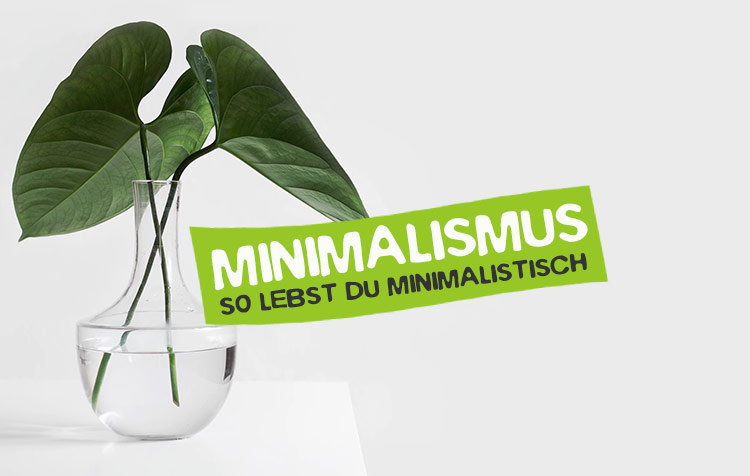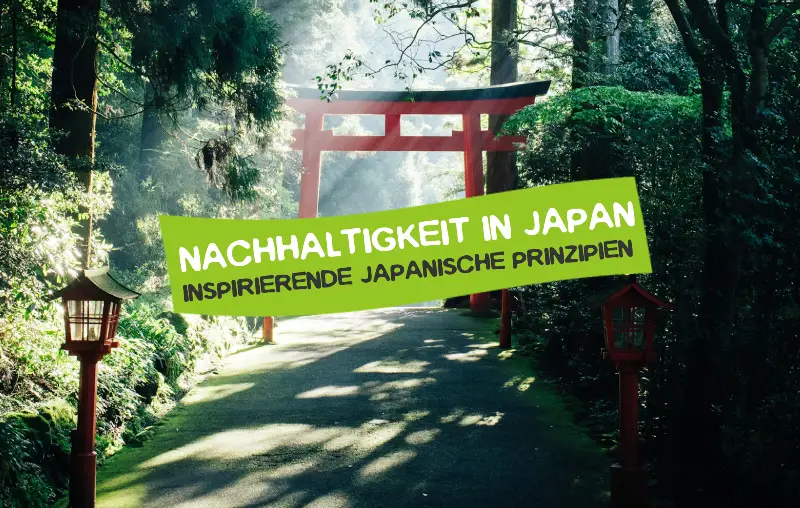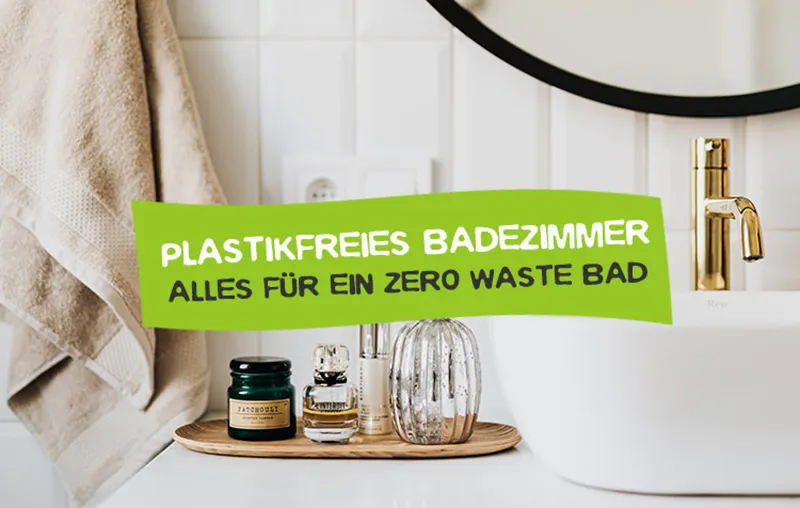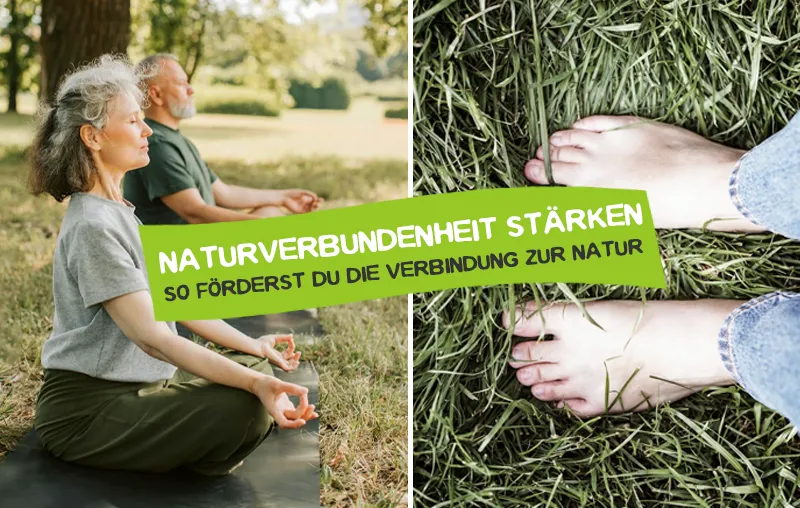What can I do against overfishing of the oceans? The demand for fish and other seafood on our plates is high. In addition to the high catch volumes, destructive fishing methods are also necessary to meet the growing demand at all times. Fishing methods that destroy the seabed and kill hundreds of thousands of other animals as bycatch every year.
Human behavior is associated with the Overfishing of the seas in the course of time one of the largest Environmental problems of our time originated.
In this article, I would like to show you what you can do to stop overfishing and help marine life. Let's go!
10 tips: What to do about overfishing?
A body of water is generally considered to be overfished if more fish are taken than can migrate or reproduce naturally. Over 37 percent of all commercially exploited fish stocks are currently considered to be overfished. Around 50 percent are also fished to the maximum and cannot cope with any further "extraction".1
An additional problem resulting from industrial fishing: every year, around 300,000 whales, dolphins and porpoises as well as thousands of sharks, seabirds and sea turtles as accidental by-catch.2 An evil that arises solely from our personal demand for fish.
Let's do something about this problem together! Here are the promised short and snappy Tips against overfishingthat you can put directly into practice.
1. only eat MSC-certified fish
As is the case with many other seals, the MSC seal not an absolute guarantee for sustainable fishing. But fish whose packaging bears an MSC seal from the non-profit organization "Marine Stewardship Council" is at least more likely to be compatible with the global populations of the species in question.
So when shopping if you want to continue eating fish in the future.
2. do not buy endangered fish species
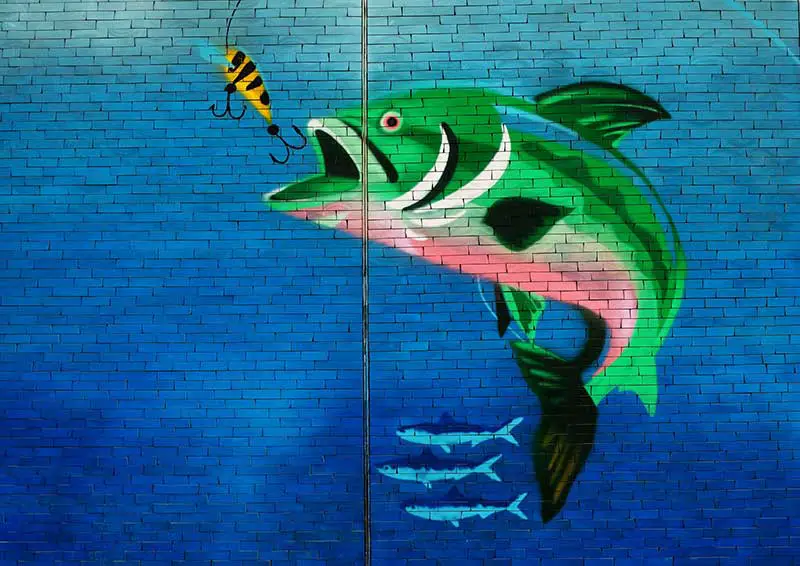
Personally, I have simply stopped eating fish and other seafood altogether. But if you want to continue eating fishyou should also pay attention to the respective species.
Species such as the eel, spiny dogfish and bluefin tuna are Threatened with extinctionbecause we prefer to eat them. However, other fish are less threatened in their existence, which is why it is worth looking into the WWF Fish Guide worthwhile at any time.
Here are a few examples of Fish species that are more likely to be recommended and still fit reasonably well into a sustainable shopping basket:
- Trout (Germany, Finland, Denmark)
- Carp
- Zander (Germany, Netherlands, Denmark)
- Hake (Northeast Pacific)
3. refrain from fish from aquacultures
In general, it is often claimed that fish from aquacultures is Species Extinction counteracts. But in aquaculture Fish meal from wild catch used to make the fish gain weight. Crazy - and not without consequences for wild stocks.
So the opposite is the case. In the end, aquaculture is just a Factory Farming with the use of insecticides and great danger for our planet, all marine animals and our own health.
4. be aware that omega-3 is not only found in fish
We catch, slaughter and eat fish because that's how we've always done it. And because the industry has impressed upon us that this is necessarybecause fish are full of healthy omega-3 fatty acids and essential proteins.
From Antibiotics- or Pesticide residues, as well as the agonizing death by suffocation of the animals in ice or live cooling, is reluctantly spoken of so that customers do not lose their appetite.
Fortunately, there are also lots of plant-based alternativeswhich contain these important nutrients.
Here are some examples of foods that Omega-3 fatty acids included:
- Linseed oil
- Hemp oil
- Walnut oil
- Rapeseed oil
- Chia seeds
- Chlorelle algae
Tip: I also supplement my plant-based diet with a Omega 3 supplements based on algae oil. This one* I can highly recommend it.
5. refrain from eating marine animals
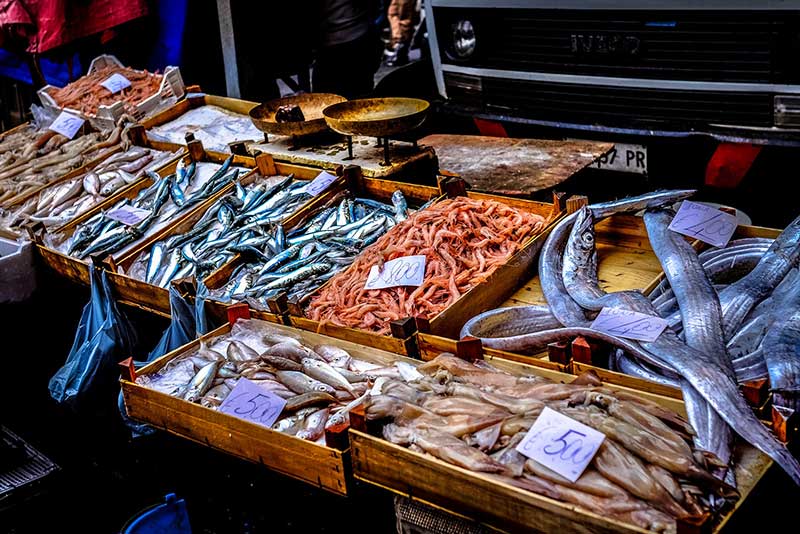
Are you a fish lover? Do you like them more for eating or because you love animals? If the latter is the case, then you should avoid eating seafood altogether to stop overfishing. That is by far the most effective means.
There are also delicious ones, Plant-based alternatives for fish fingers* and even vegan shrimps*.
Such vegan substitute products definitely make it easier for you to give up fish. And of course you can also get the essential nutrients from fish from other plant-based foods. Take a look at the article on the Start into vegan life an.
Tip: Whether dolphin, tuna, crab or the turtle caught in the net. They all have in common that they emotional creatures are those who feel emotions such as fear or joy. They also have that in common with us humans. With this awareness, you will have no difficulty in not eating fish anymore.
6. avoid and clean up beaches
Since every year up to 135,000 marine mammals at our Plastic waste in the environment perish3it is not surprising that the most plastic free lifestyle and self-organized Beach CleanUps are an effective means of stopping overfishing.
Plastic waste is so deadly because it persist in nature for many centuries remains until it is Ocean decomposes into smaller microplastics has.
So try, to consciously produce less waste and also simply clean up littered beaches while on vacation or to support them.
Tip: In order to avoid waste, I have used a Zero Waste Basic Equipment acquired. There are just a few things that are needed. For example this drinking bottle*, these stainless steel lunch boxes* and this Backpack made from marine litter*.
7. support or start petitions
It bothers you that whales are kept in captivity or that Trawling is still permitted? Then support or start an online petition against such abuses.
In order to bring about positive change in our society, it always takes people to lead the way. No one would claim that overfishing the oceans is a great thing. Accordingly, there is great potential to get as many people as possible involved and convince them to sign a petition.
8. live climate friendly
The Climate Change is a key driver of the Species extinction. In addition to consciously avoiding waste, you have hundreds of ways to stop him in your everyday life.
For example, don't just avoid fish, but meat altogether, enjoy vacation destinations by train in Europe instead of by plane all over the world - and consume regional food instead of flying fruit. Step by step you will then live in a more climate-friendly way.
Here are some further articleswhich underline why this is an effective step:
- Stop climate change - what you can do
- Shopping regionally - what you need to look out for
- Sustainable driving - it's that simple
- Why vegan? The most important reasons
9. supported organizations
We can live more sustainablyto stop overfishing. However, the support of organizations that Active every day for the protection of the oceans and all its inhabitants is also extremely effective.
These projects are particularly worthy of supportif you want to counteract overfishing:
You can help those responsible either financially with a donation or with active support on site. The latter can, for example, be a Cleanup on the beaches or even a Awareness campaign be in the pedestrian zone.
Tip: In the linked article I have also given you a Overview of recommendable animal welfare organizations compiled.
10. share your knowledge with others
Make yourself aware that you can can also change the world positively as an individual. If you just complain about others but don't do anything better yourself, it definitely won't change anything.
Rather be the role model yourself who leads the way and does something about overfishing - both for your friends, your parents, as well as for your own children. Raise the issue when appropriate, but don't force anything on anyone. Talk about what motivates you to protect marine life through your personal everyday behavior.
Ask the right questions and listen to the answersinstead of directly with Facts and figures about overfishing of the oceans around you. Here are some examples of good questions you can ask those around you, but of course also yourself, to start questioning or good conversations:
- Why do you eat fish?
- Do you think fish have feelings?
- Are you against animal cruelty? Then why do you eat fish?
Tip: It's best to only use the facts and figures from the linked article when your counterpart is open to questioning their own fish consumption.
Stopping overfishing, made easy!

How can we stop overfishing? By eating less fish and other marine animals, of course. Since each of us is decisive for the extent of demand for corresponding products, positive change also starts with each of us ourselves.
So try to reduce your fish consumption or stop it altogether. Be aware that hundreds of thousands of animals end up as bycatch - and that all animals caught on purpose must also suffer. In addition, the Industrial fishing an extreme danger for our planet and ultimately for our own health.
"Only when the last tree has been cut down, the last fish been caught, and the last stream poisoned, will we realize we cannot eat money."
Prophecy of the Cree, indigenous people of North America (more at Environmental protection quotes)
I hope that this article has given you some tips in the fight against overfishing of the oceans. If you have any questions or further tips, just leave me a comment.
Stay sustainable,

PS: Feel free to take a look at the animal welfare blog around. There you will get, for example, more tips on how to Help animals in your everyday life. You will also find out exactly, why I no longer eat fish as a vegan.
References:
- WWF Germany: Overfishing: We will soon be facing empty seas (as of 11.06.2024), available at https://www.wwf.de/themen-projekte/meere-kuesten/fischerei/ueberfischung. [24.01.2025]. ︎
- WWF Germany: Unwanted bycatch (as of 19.12.2022), available at https://t1p.de/9opg. [24.01.2025].
︎ - NABU - Naturschutzbund Deutschland e. V.: Plastic waste and its consequences, available at https://t1p.de/tykc. [24.01.2025]. ︎

